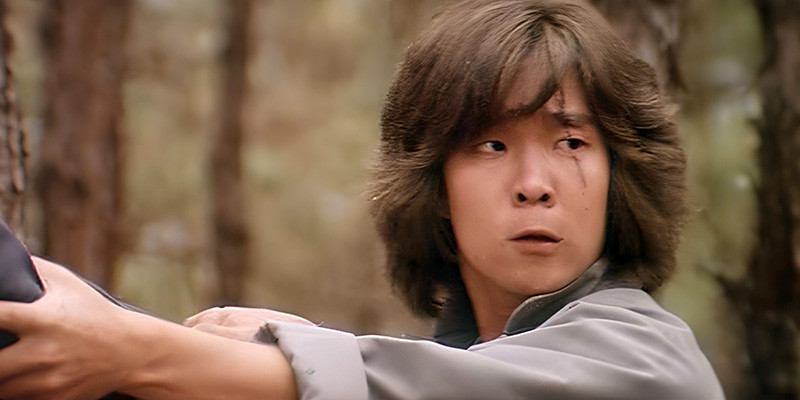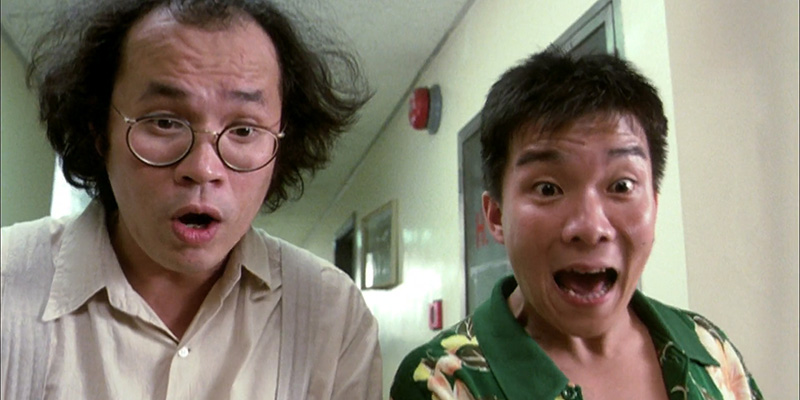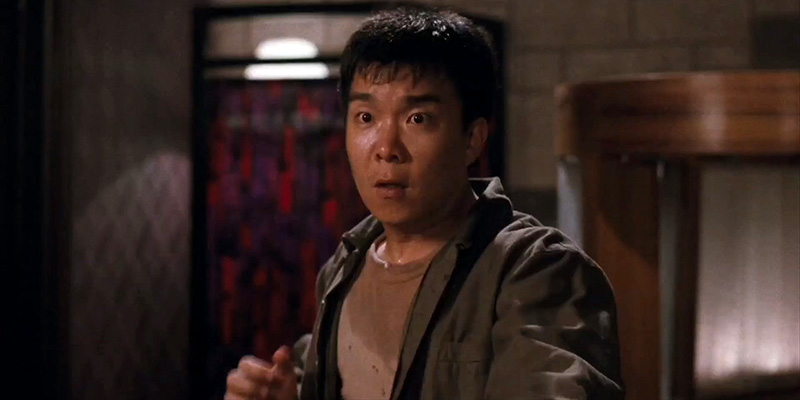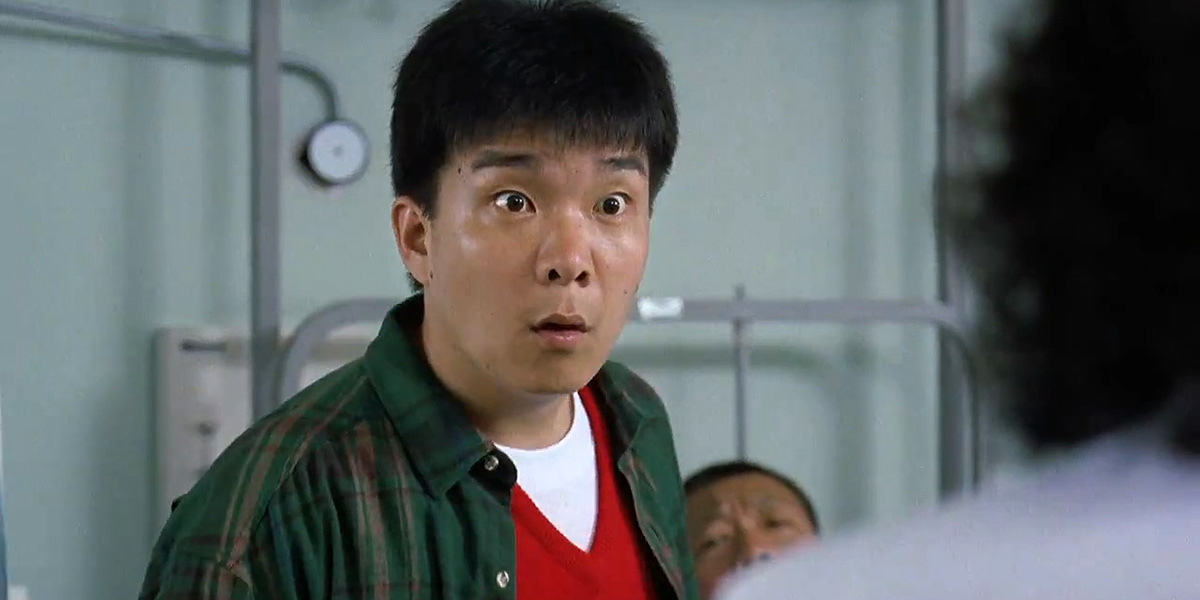I must admit that I feel rather ghoulish when I start writing a tribute like this. In a world of click-bait and the apparent fetishisation of misery, I try not to ‘exploit’ the passing of another great. Yet, for two reasons, I wanted to write one for Mang Hoi (孟海). Firstly, after my piece on the late Richard Ng, I received a touching email from the actor’s daughter. Despite her own pain, she thanked me for the article – this meant a great deal to me. Secondly, when actors like Mang Hoi die, only the merest fraction of the world of their contribution to film and to a whole generation of Hong Kong cinema acolytes. It would be a disservice if sites like Far East Films didn’t offer an affectionate tribute to someone we watched in so many productions during Hong Kong’s most influential period.
One of the things I have always valued about Hong Kong cinema is that it can elevate the most unlikely actor to hero status, occasionally even giving them romantic leads. The diminutive Mang Hoi might not have gone very far in any other industry; his work as a stuntman and double would be valuable everywhere, but it’s hard to see him as the indefatigable protagonist in most film industries around the world. Yet the small, cute-looking (initially) actor appeared as the co-star and even lead in many of the works that will forever be remembered by fans like myself.

The Dragon and the Tiger Kids (1979)
Mang Hoi started as a child star – he can be seen in films like ‘Enter the Dragon’ and ‘Fist of Unicorn’ – but really showed his physical skills in 1974 in ‘Kidnap in Rome’. His acrobatics, alongside Bruce Leung’s bootwork, are highlights of the film. Following this, he appeared in many major productions though never quite got the opportunity to shine the way he had in ‘Kidnap in Rome’. In 1979 though, this impish-looking star forever cemented his presence in Hong Kong cinema with his role in ‘The Dragon and the Tiger Kids’ (better known to many in the West as ‘Hell’s Windstaff’). Not only was he and the more well-known Meng Yuen-Man a great duo, but he looked completely comfortable against the legend that is Hwang Jang-Lee. It might have looked like an epic mismatch at first, but when you saw Mang Hoi’s capability, you realised he certainly wasn’t out of his depth. And this must have occurred to producers as, the year after, he was given a rematch with Hwang Jang-Lee in ‘The Buddha Assassinator’. In the latter especially, Mang’s physical skills are astonishing and yet he also had a very likeable presence. You were on his side from the first frame to the last (though my dog and I were less keen on what he does with Hwang Jang-Lee’s adorable puppy!).
One of his best roles – and one which introduced most of us to him – was in ‘Zu: Warriors of the Magic Mountain’. I remember watching this film on British television in the late-80s and finding Hoi and Yuen Biao to be a perfect partnership. Like so many of his contemporaries, he could perform the action with aplomb while also having a deft touch with humour. And while he was starring in this, he was also helping out with the action choreography in such classics as ‘Ninja in the Dragon’s Den’; this whole article could be about just his work behind the scenes as he contributed to some notable efforts during the 80s.

Yes, Madam! (1985)
From the landmark Tsui Hark film, Mang Hoi went from strength to strength, appearing in some of the 1980’s great action films. ‘Heart of Dragon’, ‘Millionaires’ Express’, ‘Yes, Madam!’, ‘She Shoots Straight’, ‘Legacy of Rage’…these are unforgettable works to have on one’s filmography. Two films, however, stand out. The superb Sammo Hung hit ‘Pedicab Driver’ gave Hoi a chance to show his acting range alongside his usual panoply of physical skills. No longer the baby-faced hero, now Hoi could play a more serious role and excelled in it. It wasn’t as large a part as he had in ‘Yes, Madam!’, but it was a definite winner.
The second film to mention might be an unlikely one to highlight from his catalogue. ‘The Blonde Fury’, which I first saw as ‘Above the Law II’, is enormous fun and is significant because not only does Mang Hoi star, but also directs, choreographs and even doubles for Cynthia Rothrock for the especially challenging acrobatics. As director, Hoi stirs up the atmosphere that is completely Hong Kong cinema in the 80s, that unique feeling that disarmed so many of us. It was that mix of humour and action, fisticuffs and friendship, that left you smiling after the credits rolled. Yes, you actually felt uplifting watching films like ‘The Blonde Fury’, you knew that people put their well-being on the line to entertain you and that, with a minimal budget compared to their Western rivals, they were performing minor miracles. They created unforgettable memories for many of us, probably without even knowing it. That is quite the cinematic legacy to leave.

Pedicab Driver (1989)
Beyond the early 90s, Hoi disappeared from view. Perhaps tastes changed or there was no longer a place for such an unlikely hero. Whatever the reason, for many fans of Asian cinema, this plucky little action star was someone we were forever grateful towards. He brought back memories of a wonderful era of Hong Kong cinema, formative years in our own lives and how cinema is so much more than big-budget summer blockbusters or oblique European arthouse efforts. Mang Hoi has an assured place in Hong Kong cinema’s history. However, you kind of hope that, at the very end, he was also aware of how his presence in films that were never intended to travel beyond Asia, delighted fans worldwide.
- In Between Loves - March 21, 2025
- Crazy Nuts Of Kung Fu - March 10, 2025
- Mama’s Affair - February 20, 2025

